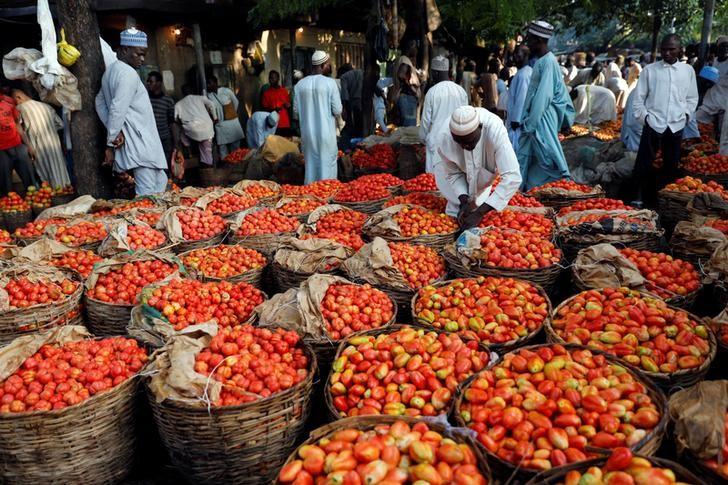The National Bureau of Statistics (NBS), on Friday, published the Consumer Price Index for December 2020, showing that for the 16th consecutive month, Nigerian salary earners became poorer.
Inflation rate for the period soared again by 15.75%, from 14.89%, the highest according to analysts, since November 2017, meaning that cost of living has increased steadily over the period.
As has become usual since the Federal Government’s decision to close the nation’s borders in August 2019, food inflation, according to the NBS report soared the most at 19.56%, 1.26% higher than the 18.3% recorded in November; while core inflation stood at 11.37% from 11.05%.
Inflation, according to analysts at Arthur Stevens Assets Management, a Lagos-based investment banking group, blamed the nation’s surging securities challenges, especially in family communities across the country for the soaring food inflation.
This, it said, is made worse by “the lingering impact of the border closure on the supply gap coupled with the festive induced demand which further expanded the demand supply imbalance.”
Investdata notes that the Federal Government’s directive that the nation’s land borders be reopened has not yet been fully complied with.
For analysts at Cordros Securities, another Lagos-based investment group, reasons for the spike also included “the sustained impact of the poor harvest season, festive induced demand which further widened the supply gap, (and) high food distribution costs.
Specifically, average annual rate of change of the Food sub-index for the 12-month period ending December 2020 over the previous 12-month average was 16.17%, 0.42% up points from the 15.75% average annual rate of change recorded in the previous month.
The rise in food index was blamed on increases in the prices of bread and cereals, potatoes, yam and other tubers, meat, fruits, vegetable, fish and oils and fats.
The month’s inflation growth, the NBS noted, left “the percentage change in the average composite CPI for the 12 months period ending December 2020 over the average of the CPI for the previous 12 months period was 13.25%, representing a 0.33% point increase over 12.92% recorded in November 2020.”
The urban inflation rate climbed up by 16.33% (year-on-year) in December 2020 from 15.47% recorded in November 2020, while the rural inflation rate increased by 15.2% in December 2020 from 14.33% in November.
In the period under review, Year-on-Year all items inflation growth was highest in Bauchi, where it stood at 19.85%; followed by Edo, 18.15%; and Kogi, 18.40%; and slowest in Abia, where it stood 13.30%; Kwara, 13.91%; and Lagos, 14.05%.
Month-on-Month inflation was highest in Nasarawa, 2.30%; Gombe, 2.20%; and Akwa Ibom, 2.16%; and recorded the slowest growth in Ebonyi, 0.61%; Rivers, 0.67%; and Ekiti, 0.87%.
Food inflation YoY was at is peak in Edo, where it soared by 24.14%; followed again by Kogi, 23.14%; and Sokoto, 22.24%; while recorded Nasarawa at 15.71%; Abia, 16.04%; and Bauchi, 16.53%.
MoM again, food inflation was highest in Edo, 3.68%; and Gombe, 3.00%; while Ekiti recorded 0.24% rise, the slowest during the period; followed by Osun, 0.59%; and River, 0.93%.








